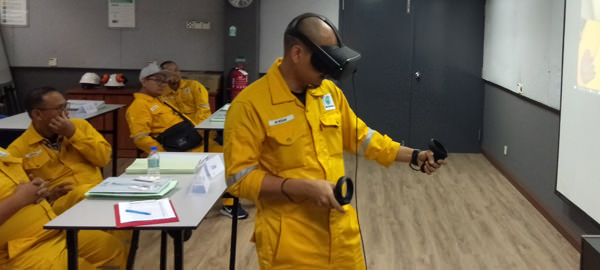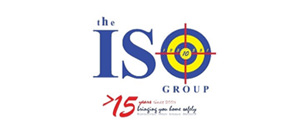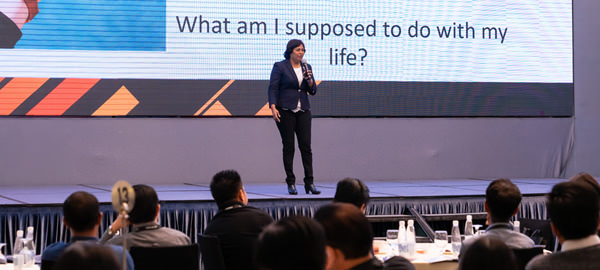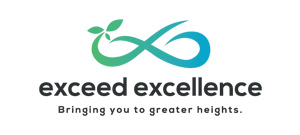Article 1
THE POWERFUL 1%:
GOING LEAN IN A GLOBAL RECESSION

Currently, the whole world is grappling and bracing against the possible global recession due to the COVID-19 onslaught. This would not be the first time I will be facing with an economic recession, but my fourth. Thus, with more than 15 years’ experience as a Principal Consultant Trainer together with 35 years of Strategic and Operational experience in Manufacturing and Service Industries, I hope my insights will encourage all to implement Lean Management in order to survive this economic depression.
Introducing: Lean Management?
Lean management in a nutshell is building an organisation to create (by optimising resources) and deliver value (according to the customer’s need). It is an organisation which eliminates waste and constantly evolves through continuous improvement (CI) process, long before the mosquito sits on your nose (recession).
A recession is a business-cycle contraction when there is a general decline in economic activity. This may be triggered by various events, such as a financial crisis, the bursting of an economic bubble, an external trade shock, or the current disruption in global supply and demand chain for raw materials as well as finished goods and services due to the COVID-19 pandemic.
How Lean Management can cushion the blow during and after an Economic Recession
When an economic recession arrives, however unprecedented like the pandemic, arrows fly in from more than one angle and economic haemorrhage oozes out from more than one outlet. However, if an organisation can save 1% periodically, then the organisation becomes efficient and lean all the time. With that powerful 1% cut or what I like to call the ‘1% vaccine’, the impact will be less painful and catastrophic. However, what if there is no more ‘fat’ to cut, as your organisation is already operating at the utmost efficient level?
‘FAT’ is the Factors of Production
One of the factors of production is human capital (the stock of knowledge in the labour force). Embracing Industry Revolution 4.0 (IR4.0), Artificial Intelligence (AI), Internet of Things (IOT), Disengage and Digitalisation are some of the actions to develop human capital and achieve Lean status. All organisations whether production or services are now approaching IR 4.0 where big data and cyber-physical systems take the centre stage.
Vendor or Buyer organisations are reinventing new-wheels and changing the way business are to be conducted in the next normal. AI, IOT, Big Data and many others are the new wheels to do business. Benefits include zero defects in production, agile and attractive to other organisations. The machines perform with agility, speed, accuracy and less effort. Furthermore, IOT technology enable different machines to inter-communicate through internet & cloud computing.
Organisations can stay relevant by upgrading their machines and keeping their employees relevant by ensuring training for employees to be multi-skilled, upskilled and reskilled to adopt new technological advancement in order to avoid retrenchment. Before I explore multi-tasking, upskilling and reskilling below, it is crucial to emphasise the importance for employees to unlearn and relearn, as all kinds of skills have a limited shelf-life. If one thinks one has ‘life-long’ skills, then there is a danger of becoming irrelevant!
Multi-tasking
Multi-tasking employees increase the productivity of the organisation because they can deliver more output with minimal resources. Employees with multi-tasking abilities have better chances of survival than others, and more so in an economic recession. They can do several upstream or downstream tasks on their own and do not have to depend on others for every small process. In a recession, those low-skilled employees and the young are most vulnerable to be retrenched. After a recession, it normally takes about five years for national and global unemployment figure to fall back to original levels.
Reskilling and Upskilling
Organisations need to redesign jobs when there is a new sales offering, business model or strategy, automation of emerging technological disruptions. Most organisations often choose to reskill current employees because they understand the culture and the nature of the business. This is especially true, if the new skills are for critical thinking and decision making, leadership and managing others, and advanced data analysis.
However, organisations might face difficulties in solving the problems of reskilling if they do not have a clear vision on:
- What skills are needed – Companies might not recognise skill gaps in their workforce. A diagnostic can show which skills will be necessary in the future.
- Which skills to develop – An empirical approach to compare the supply of each skill with the organisation’s needs.
- Which employees should first be re-skilled – Some skills require longer time to learn and some require hands-on experience.
- Whether it is an upskill matter – Some employees may not want or not suitable for coordination & supervisory duties with a higher responsibility.
- How to strategically close gaps – Organisations should prepare employees for change by explaining the reskilling agenda and each employee’s future role and reskilling options.
- How to build strategic partnerships – Trainees should be assigned to final user destination departments’ simulated environment or projects that allow practical skills while they learn.
- How to coordinate and blend various providers – Whereby a range of skills are required, coordinate multiple providers and blended learning resources (e.g. in-person, digital, e-learning, online platforms, universities, technical organizations).
As a result, many organisations that have overcome the obstacles of reskilling efforts in line with IR 4.0 have achieved positive results, such as in enhancing bottom-line growth, positive performance on KPI, employee satisfaction and increased customer switch over.
To conclude, many see their job skills are becoming less valuable or replaceable. Thus, all parties need to play their roles. Leaders should not do lip-service engagement but foster organisation’s culture of lifelong learning for lifelong employability to ensure these reskilling programmes succeed. Trainers must execute proper upskilling trainings with the right upgrading modules for rank and file employees. Employers need to upskill and learn how to handle this new duty by facilitating a group of long serving employees to relearn or manage a new generation of young employees. Finally, employees need to relearn to stay relevant to ensure a life-long employment
“HRD-TEE feedback has helped us to evaluate our courses to be in-line with the needs of employers, as well as improve our delivery methodology & content.”

Written By :
Lt. Colonel (CD) Frank Tan
Principal Consultant,
In-Source Options Sdn Bhd
Article 2
THRIVING THROUGH CRISIS AND BEYOND

The Movement Control Order (MCO) was first announced on March 16th, seeing Malaysians with only one day for them to prepare before it was an official enforcement on March 18th. “How is life going to be different for me, my family, my clients and friends?”, I thought to myself, in the event of our current pandemic situation. The next question that followed was, “Since I can’t carry on with my training and conferences, how can I add value to the community whilst staying at home?”
To journey with my family, friends and clients, I decided to start posting tips and practical action plans daily on my social media platforms. Seeing how some Malaysians were already feeling anxious and agitated being confined to their homes, feeling hopeless with a constant stream of COVID-19 updates, these tips and actions plans acted as my mission on helping the people around me thrive during the MCO, and not to just survive. Being someone who was never comfortable with being recorded on video, I did something totally and completely OUT of my COMFORT ZONE. I decided to make use of the incredible invention that technology provides by making recap videos of my social media postings at least twice a week. I must say, that after doing this for a few weeks, I have made a smooth transition from my comfort zone to my creative zone. I would like to give credit to my mentor John C. Maxwell for the many things I have learned about leadership and leading through crisis and I’m grateful to be able to share my learning, insights and experience here. Special thanks to HRD Corp for this opportunity to touch and inspire many more lives.
Thriving means making the best and doing even better considering the limitations and challenges we are currently facing. So, how can we THRIVE during the MCO? Let’s start by looking at the definition of what a crisis is.
A crisis is an intense time of difficulty that requires a decision that will be a turning point
What we are currently going through is a crisis. Before we move into steps on how to thrive during the MCO, it is important to understand a few points about crisis and the impact it has on our lives.
What does a crisis bring to the table?
- Crises are quite common in history.
There have been many crises in the past – Y2K, Anthrax, SARS, bird flu, bad economy, swine flu, Ebola and many more. None of that, though, has caused restrictions and orders like the Movement Control Order we are currently in. Hence, this is something very new for us. - A crisis is distracting.
It causes fear which seems to be spreading even faster than the COVID-19 virus. People fear that their business will fail, parents fear that their children’s education will suffer, wage earners fear that they won’t have food on the table tomorrow. - A crisis reveals what is inside of us.
It helps us grow and mature in wisdom. - A crisis requires adaptability.
Being adaptable is not about submitting to conformity. Conformity says, “Blend in like everyone else and accept your weakness and its consequences.” Adaptability, on the other hand, says, “Adjust to succeed and work out of your strength.” That being said, we need to adjust our way to victory. - A crisis is a time when real leaders show up.
Leadership is influence, nothing more, nothing less. Real leaders create a visible presence during a crisis. They remain calm, confident, and hopeful. They assure their families and their work teams. Real leaders go out of their way to the front and show up with clarity and hope. We know that we can’t be certain about what is happening, but we can be certain about hope. Clarity helps people prioritise. Jonathan Sacks teaches, “Optimism and hope are not the same. Optimism is the belief that the world is changing for the better; hope is the belief that, together, we can make the world better.” (Taken from To Heal a Fractured World: The Ethics of Responsibility). Hope requires far more courage than optimism. - A crisis bumps us out of our comfort zone into our creative zone.
My comfort zone consisted of me standing in front of a live audience in my leadership conferences and trainings. Now, during the MCO, I find myself standing in front of my camera, speaking to thousands of people through my videos. Never in my wildest thoughts would I have imagined this would become a reality. From my comfort zone, I have moved into my creative zone. - A crisis causes change.
A crisis will never leave us the same and that’s alright! However, we want to come out of this crisis stronger and wiser. There will be bruises but we will not be left powerless.
HOW DO WE THRIVE DURING THIS CRISIS?
Good things come out of bad things when we have the right perspective. Here are a few Perspective Principles. Let’s reflect to see if we possess these principles in our own lives.
- Everything worthwhile is uphill.
I learned this from my mentor. Everything we have achieved in our life that we are proud of did not come easy for any of us. We worked hard, we were committed and we stretched ourselves to succeed in those areas. Therefore, we manage to build the perspective of, “Yes, this is a tough time for me, but I am going to get better as a result of it.” - There’s always an answer.
We will always find a way to improve. Be it improvements in our lifestyle, business, families or our own character. Successful people always know that and are aware of it. The greatest gap between successful and unsuccessful people is the Thinking Gap – Victim vs Victor. Successful people have a mindset of winning through this crisis while unsuccessful people, although not infected with the virus see themselves as a victim of COVID-19. The reality for them is that this virus has destroyed their way of life as how they knew it to be. They feel sorry for themselves and take the position of being a victim while blaming the external circumstances which are beyond their control. - Allow adversity to help you discover who you are
It is during this time that you are given the opportunity to try something new or improve in an area that you are not strong in. It’s a time to re-discover your purpose in life. Are you satisfied with your life? Do you feel a sense of fulfilment doing what you do? As you reflect on all these questions, you begin to find answers about yourself. Reflection turns experience into insight. These insights will then help you make better decisions moving forward. Plus, here’s where best turns into better. - Develop a positive life stance
Simply because we are in a distressing situation, it doesn’t mean that it’s all bad. Life is filled with good and bad. Some of the good/bad situation, I can’t control while the others will find me. If we have a positive life stance, the good and the bad will get better. If you have a negative life stance, the good and the bad will become worse. So, choose a positive life stance. - Today matters
Don’t wait till after the crisis is over to do things differently and make better decisions. Instead, make today count. Every day, choose to care for people, speak with kindness, give your best at work, communicate hope, be generous and the list goes on. What will you do daily to make your day count? - Reflect instead of react to adversity
We can’t fight against a crisis like COVID-19 but we can reflect and find insights about ourselves. Some questions we can ask include – “What happened in my world today? What did I learn today?” Listen to your own answers and take the right action moving forward. - Adversity makes people stronger
Our willpower when faced with a crisis, acts like a muscle. It’s like going to the gym. If we show up at the gym to work out every day, we will eventually become physically stronger. Likewise, if we are consistent in working through this adversity, we will become much stronger.
- How will this crisis make me better?
- How will I use this crisis to help other people?
- What action will I take that will improve my situation?
“The HRD-TEE is a good initiative to enable training providers’ effectiveness to be recognised and made transparent to employers as well. It also enables HRD Corp to know which trainers are registered with them and how they are contributing to the employers’ people development and growth initiatives.”

Written By :
Anita Lawrence
Founder,
Exceed Excellence Sdn Bhd









